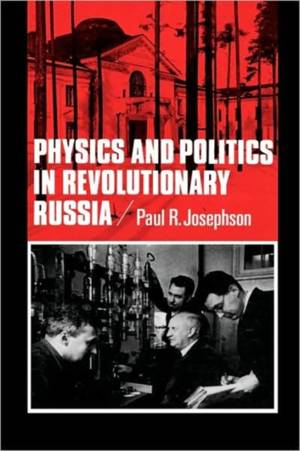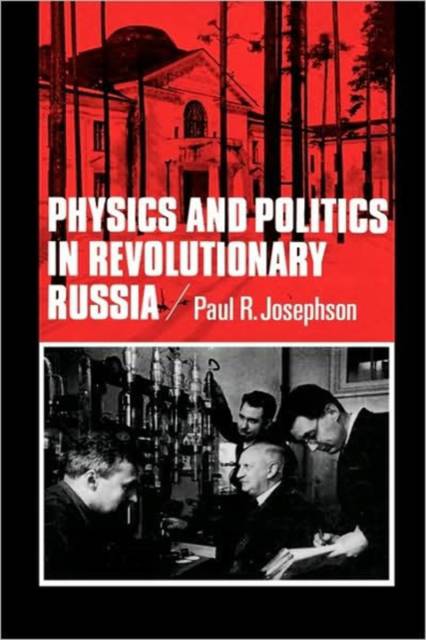
Je cadeautjes zeker op tijd in huis hebben voor de feestdagen? Kom langs in onze winkels en vind het perfecte geschenk!
- Afhalen na 1 uur in een winkel met voorraad
- Gratis thuislevering in België vanaf € 30
- Ruim aanbod met 7 miljoen producten
Je cadeautjes zeker op tijd in huis hebben voor de feestdagen? Kom langs in onze winkels en vind het perfecte geschenk!
- Afhalen na 1 uur in een winkel met voorraad
- Gratis thuislevering in België vanaf € 30
- Ruim aanbod met 7 miljoen producten
Zoeken
Omschrijving
Aided by personal documents and institutional archives that were closed for decades, this book recounts the development of physics--or, more aptly, science under stress--in Soviet Russia up to World War II. Focusing on Leningrad, center of Soviet physics until the late 1930s, Josephson discusses the impact of scientific, cultural, and political revolution on physicists' research and professional aspirations.
Political and social revolution in Russia threatened to confound the scientific revolution. Physicists eager to investigate new concepts of space, energy, light, and motion were forced to accommodate dialectical materialism and subordinate their interests to those of the state. They ultimately faced Stalinist purges and the shift of physics leadership to Moscow. This account of scientists cut off from their Western colleagues reveals a little-known part of the history of modern physics.
Political and social revolution in Russia threatened to confound the scientific revolution. Physicists eager to investigate new concepts of space, energy, light, and motion were forced to accommodate dialectical materialism and subordinate their interests to those of the state. They ultimately faced Stalinist purges and the shift of physics leadership to Moscow. This account of scientists cut off from their Western colleagues reveals a little-known part of the history of modern physics.
Specificaties
Betrokkenen
- Auteur(s):
- Uitgeverij:
Inhoud
- Aantal bladzijden:
- 330
- Taal:
- Engels
- Reeks:
- Reeksnummer:
- nr. 7
Eigenschappen
- Productcode (EAN):
- 9780520074828
- Verschijningsdatum:
- 16/12/1991
- Uitvoering:
- Hardcover
- Formaat:
- Genaaid
- Afmetingen:
- 161 mm x 237 mm
- Gewicht:
- 766 g

Alleen bij Standaard Boekhandel
+ 213 punten op je klantenkaart van Standaard Boekhandel
Beoordelingen
We publiceren alleen reviews die voldoen aan de voorwaarden voor reviews. Bekijk onze voorwaarden voor reviews.









